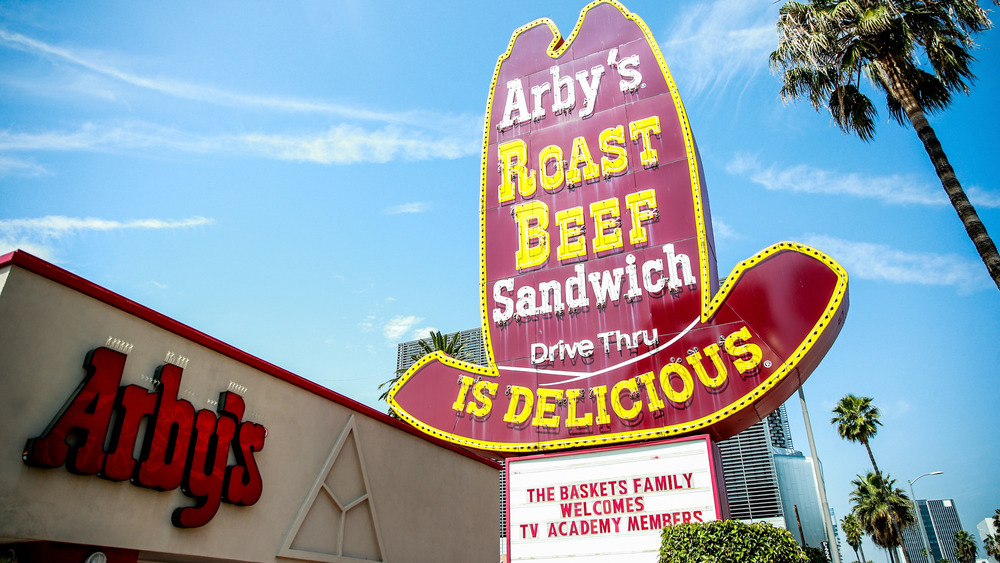Why This Fast Food Company Is Taking Credit For Keeping The Minimum Wage Low
On March 26, The Daily Poster revealed that internal documents from Inspire Brands, the holding company that owns Arby's, Dunkin', and Baskin-Robbins among others, had informed its investors and employees that it would claim credit for Congress excluding the minimum wage increase to $15 per hour in the recent COVID Relief Bill. The Daily Poster quotes the report's claim as, "We were successful in our advocacy efforts to remove the Raise the Wage Act, which would have increased the federal minimum wage to $15 and eliminated the tip credit."
The company further informed both its investors and employees of its lobbying against the PRO Act, which, as NPR reports, is now heading to the Senate after the House passed it with 225 votes. In another section quoted by The Daily Poster, Inspire Brands defends this decision by citing how the act would consider franchisees as employees, thus removing their independence.
Setting aside questions concerning a franchisee's actual independence, the problem with this claim is that it is not strictly true. As EPI states, the PRO Act will not alter the employee status of independent contractors but it would prevent the mislabeling of employees and contractors and would give them the right to unionize.
Why Inspire Brands fought against higher minimum wage
Inspire Brands' opposition to the PRO Act deserve some spotlighting as well. In 2019, Dunkin', then still independent from Inspire Brands, explained in a government filing that if the standards of the National Labor Relations Board were applied to the franchisee model, "it could cause us to be liable or held responsible for unfair labor practices and other violations of our franchisees and subject us to other liabilities, and require us to conduct collective bargaining negotiations, regarding employees of totally separate, independent employers, most notably our franchisees." If so, Dunkin' continued, operating prices could increase.
These companies base a decent portion of their profits on distancing themselves from the workers who, lest we forget, have been on the frontlines of a global pandemic. It should be noted, Inspire Brands is not alone as a letter signed by the National Franchise Association, The National Restaurant Association, and the National Council of Chain Restaurants among others claimed that "the PRO Act would harm current franchise owners through a potential massive expropriation of equity."
Again, this isn't true. The PRO Act as written amends a section of National Labor Relations Act that guarantees unions to include independent contractors. Equity isn't involved. Considering the glee with which Inspire Brands seems to have informed its employees of its role in ending the $15 push, this obtuseness seems purposeful. After all, it reported $26 billion in sales in 2020.

